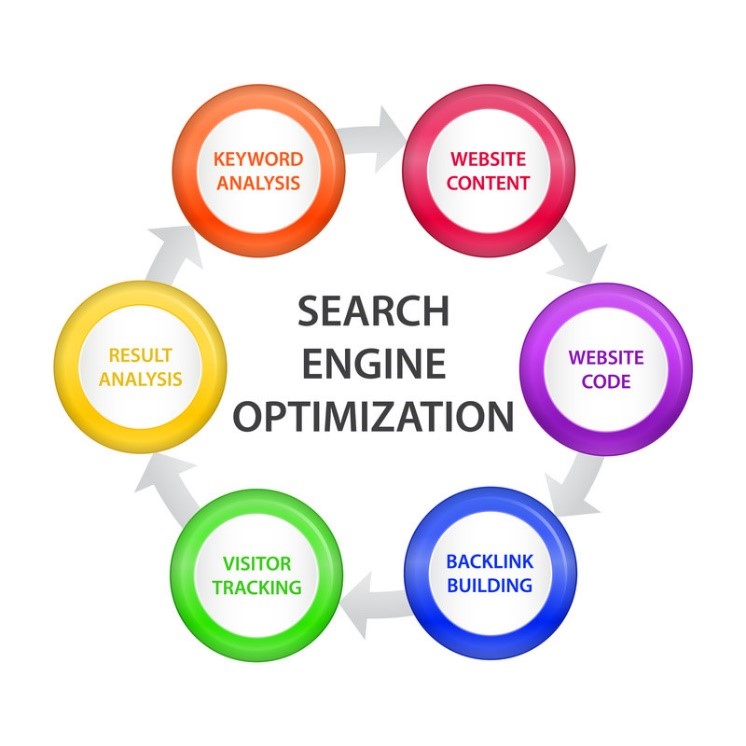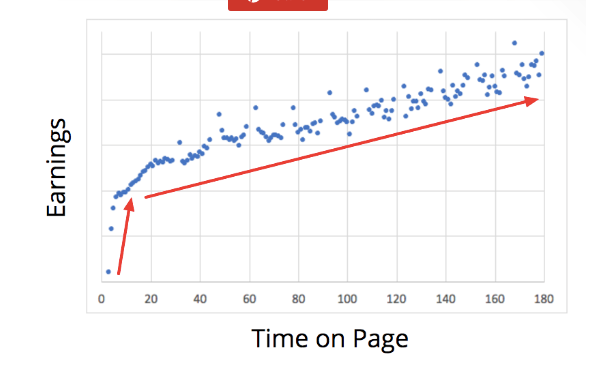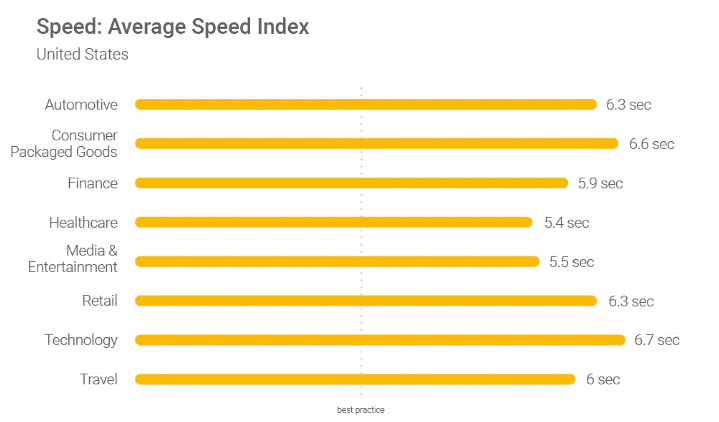SEO Guides, Tips & More!
Learn from Our Experience
Ultimate Guide to SEO for Accountants
![]()
We wrote about how high-growth accounting firms are increasing their digital marketing spend in 2020, and how most accounting firm marketers recommend increasing SEO spend, too. It’s such a big topic that it’s hard to know where to start, much less what everything means. In the next three posts, we’re going to dive into every major aspect of SEO so that by the time marketers are done reading, they’ll be able to explain what it is, why it matters for their firm, different ways of approaching SEO, and actionable tips that any firm can put into practice immediately. Look for the SEO icon next to quick, easy actionable tactics.
Here’s what Part 1 of the Ultimate SEO Guide for Accounting Marketing will cover:
- What is SEO?
- How is SEO Used for Accounting Firms?
- Types of SEO Campaigns
- Benefits of SEO to Accounting Firms
- Factors Affecting SEO Performance
- Five Free Awesome SEO Hacks You Can Use Today
What is SEO?
Every accounting marketer knows what it means, so “what is SEO?” becomes almost an existential question. SEO is a process of making the content on a website easier for Google and other search engines to find and enhancing that content so that the right people see it. The purpose of SEO is to increase organic traffic to a website and improving a page’s and website’s rank on Google’s search engine results page, or SERP. Ultimately, leading to an inquiry that is prime to purchase services from the firm.
SEO tactics can be done incrementally and for free by adding metadata to each page on the site, like the page title, images, and page description. It costs nothing to add keywords like ‘estate planning CPAs’ or ‘construction attorneys’ to a home page. What does require fees are expert-guided SEO strategies that inform firms of what keywords to use, how to optimize their websites, and how to improve the user experience so that SEO performs better. More on that soon.

© Can Stock Photo / LiliWhite
What SEO is not:
- Set it and forget it
- Keyword stuffing for the sake of adding keywords
- Buying links
- Quick results
SEO works together with the firm’s website and technology and builds out from there. It’s a circular, fluid process that is updated as results are analyzed.
How is SEO Used for Accounting Firms?
There are a few ways that SEO is leveraged. On-page SEO, for example, will optimize pages on the site to rank for certain keywords. This is an area that marketers can control.
![]()
Once the target keyword is identified, make sure it’s located in the page’s header, slug, first paragraph, meta description, and alt-text. Most of these are self-explanatory, but the slug – what is that?

In WordPress. the slug of a website is the part of the URL that appears after the domain name. It’s crucial the target keyword appears here. Use lower case letters and dashes instead of spaces; WordPress makes it easy to change or update page slugs and will auto-correct these two items. Because WordPress defaults its slug to something generic, it’s important to update it with the targeted keyword.

Off-page SEO is the part that marketers cannot control. It’s the process of other, high-value websites linking back to the firm’s site. For example, the local industry association or PR mention on the Business Journal’s website. The more high-quality links that point back to the firm’s site, the better its off-page SEO rank will be.
![]()
There are a few ways to build off-page SEO links, such as:
- Ensure the firm is listed correctly in online business directories
- Guest author on a law firm’s blog (or another prominent referral source)
- Publishing content on partner sites
- Social media
- Outreach to industry authorities and requesting a backlink
The result is that firms will see an increase in quality and quantity of web traffic over time, so even though SEO won’t originate new engagements on its own, it will play a direct role in getting better leads to the site. As long as the firm’s sales process is set up to collect and maintain those leads, the firm will grow.
Since we work with Google almost exclusively, most of the SEO tips are with Google in mind. For marketers that want to read up on SEO with regard to Bing, here’s a good resource.
Types of SEO Campaigns
Local SEO Campaigns are designed to increase web traffic in the firm’s local geography. Local SEO campaigns incorporate city and/or state name in key website positions and can integrate local directories like Yelp, Yellowpages, and Google My Business. They tend to be less expensive than national SEO campaigns. Online reviews are a really important piece of the local SEO puzzle. We wrote about four ways to optimize a site for local SEO last year; here’s the first post to explore the topic in more detail, and this post on improving local SEO rankings.

National SEO Campaigns are not limited to a specific geographic market and are better for overall branding or for firms with multiple offices (or when the firm has a niche it is well-known for and client location doesn’t matter). National SEO campaigns cost more because the competition for target search terms is higher, and the target audience is a lot more expansive.
Sometimes, a hybrid approach can work well.
Google Ads/PPC campaigns can work well in tandem with organic SEO efforts by proactively prioritizing specific pages on a CPA firm’s site, or to promote a new service offering, event, and so on. There are five different types of Google Ads campaigns. Using the right one depends on what the campaigns’ goals are, whether it’s to increase sales, advertise the firm’s new app for clients, or simply promote the brand. The five types of Google Ad PPC campaigns are:
- Search Network Campaign
- Display Network Campaign
- Shopping Campaign
- Video Campaign
- App Campaign

We won’t go into detail on these campaigns here, since we already did back in July of 2019. Have a read to dive deeper into Google Ad campaigns.
Benefits of SEO to Accounting Firms
SEO strategy for accounting firms is like having a data-driven business developer who is on call 24/7. Instead of going to a networking event and collecting business cards of people who may or may not be good contacts, SEO works with Google to put the firm in front of people who are most likely to click on a link. It’s a key part of a successful inbound marketing strategy, especially in geographic regions where competition is high and the firm needs a way to stand out. Local SEO is perfect for this purpose, which we talked about in the previous section, Types of SEO Campaigns.
What Accounting Firms Can Expect in SEO Return on Investment
Proving return on investment is apparently the top concern when it comes to SEO. We’ve found this has more to do with a lack of knowledge and understanding about what is actually being measured.
If the firm has engaging content and an established sales process, these metrics are most often used to measure SEO success.
- Increase in organic search queries for the firm’s name
- Higher page ranking
- Lower bounce rate
These metrics then lead to more tangible results, including:
- More goal conversions on the website (usually set up as forms or other actionable items)
- Higher click-through-rate for PPC campaigns
- More leads generated online, and better-quality leads
Understand that if a URL doesn’t appear on the first page and within the first few spots, it won’t be found. Over 90 percent of web traffic goes to sites listed on page one of Google SERP, and 60 percent of clicks go to the top three spots. Higher page ranking can directly translate to more conversions, and more conversions mean more new leads.
Here’s a useful graph that demonstrates the longer someone stays on the site, the higher the company’s revenue. (Source)

Factors Affecting SEO Performance
Even the best laid plans can go awry, and such is the case with SEO performance. On-point keyword research and painstaking content development might not be enough for a successful SEO campaign. Website security, page speed, and user experience are some of the most important reasons why an SEO campaign won’t perform as well as it could.
Mobile performance Even though Google has required mobile sites for a few years now, there are still some accounting firms whose mobile sites need to be better optimized. Flash players, excessive text, and out-of-control formatting are just three ways that a poorly performing mobile site can impact SEO. Of course, sites that aren’t mobile-optimized at all will get penalized and just won’t rank as well anymore at all.

Loading speed Slow websites will lose traffic. Not only is page loading time a factor in SEO rankings, it also annoys users. For desktop web visitors, it’s recommended that the page loading time should be two to four seconds. Even a one-second delay can affect site traffic. Mobile sites have a little more flexibility, but not much.
Google’s free PageSpeed Insights allows marketers to put in a URL and test its page loading time, then get tips on how to increase the speed of that page.
Most sites aren’t performing to those standards; check out this graphic from QuickSprout on average page loading times for eight industries.

Website Data Two types of data, schema markup and the robots.txt file affect how Google indexes your site. Schema markup is code that SEO consultants or web developers can add to the site, and the markup code allows Google to better understand and organize web content. A robots.txt file, when blocked, prevents Google from crawling the site. Both of these issues can be fixed with the right help.
User Experience What path does a web visitor take when they enter the site? Are calls to action clear and easily located? Do users have to click on several pages to get what they really wanted on page one? Web users are notoriously impatient, and the user experience needs to be seamless. Think about the web browsing journey from their perspective and ensure that menu placement, buttons, and salient information are prominent. When users have a positive experience, they are more likely to buy more, come back, and tell their friends. And when they’re unhappy, they spread the word even faster and further.
Finally, the effectiveness of any SEO campaign depends on the content and sales process supporting it. An SEO consultant can tweak webpages, add keywords, advise on-site design, and help with a PPC campaign, but don’t expect much to happen besides a surge in new website visitors unless the content connects with readers and there are clear action steps for them to take. From there, it’s up to the firm to manage the leads and follow up appropriately.
For examples, read our previous blog post on three areas of the website where leads can be captured and tracked … but often aren’t.
Five Free Awesome SEO Hacks You Can Use Today
There are so many apps and plug-ins for digital marketing that it’s hard to decide which ones are worth installing. We have used each of these tools ourselves and can verify that they are valuable tools to any SEO campaign. These are in addition to Google KeyWord Planner and Google Analytics.
It’s free and displays information about the site’s performance for various keyword terms. Google Search Console will tell users how many times their site appeared and the CTR.
Another Google tool, but worth it to see how often a topic or search term has been searched for over a specified time period.
Yet another free tool, Answer the Public will visually display keyword search terms along with various word and phrase combinations.
This Chrome plug-in allows users to measure SEO metrics, conduct SEO audits for webpages, check social stats, compare websites, and export the data. It has a SERP overlay feature that’s useful to see metrics for different sites, too.
This free plug-in pulls SEO data from 16 different marketing websites, including some of the ones mentioned in this post, to compile search volume, cost per click, and competition data.
Speaking of content made for SEO, we have a lot of great tips and resources to share in the next post.
In the meantime, let us know what questions you have about SEO campaigns, ROI, or types of campaigns.

